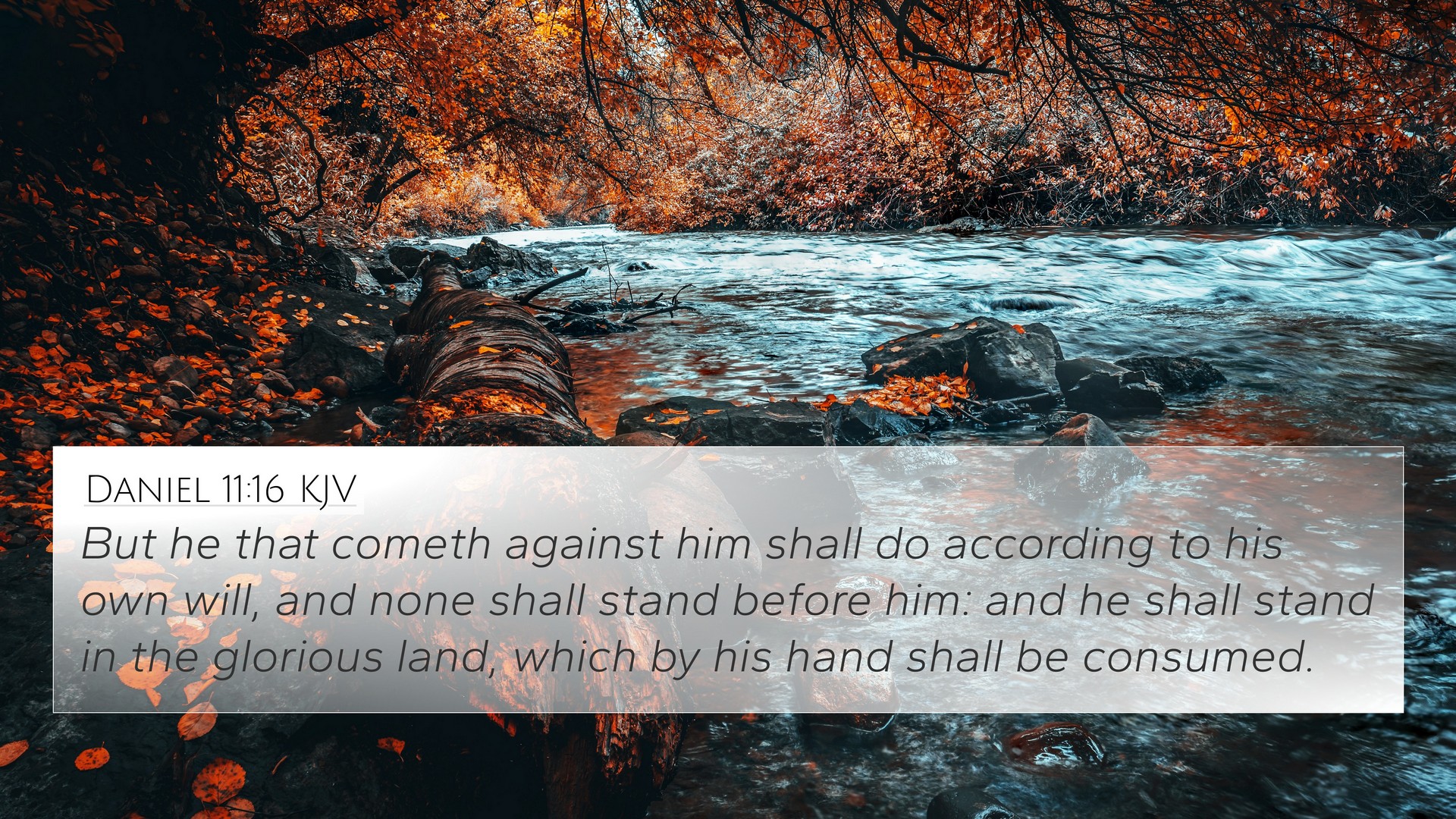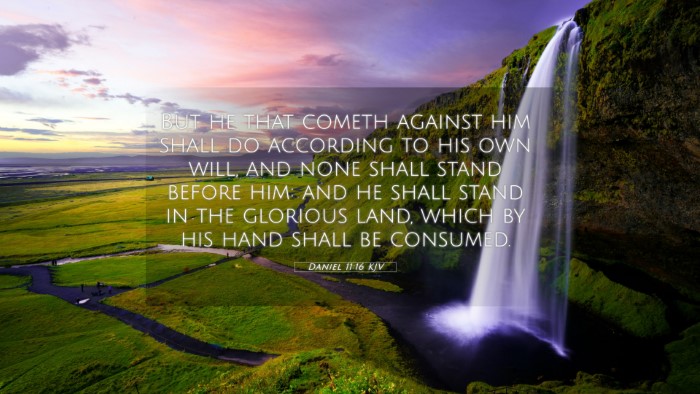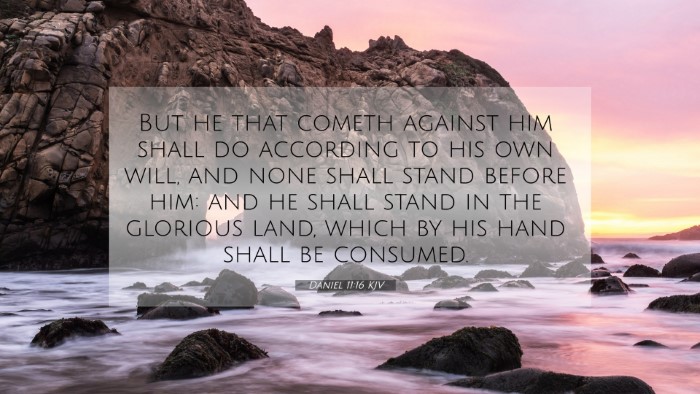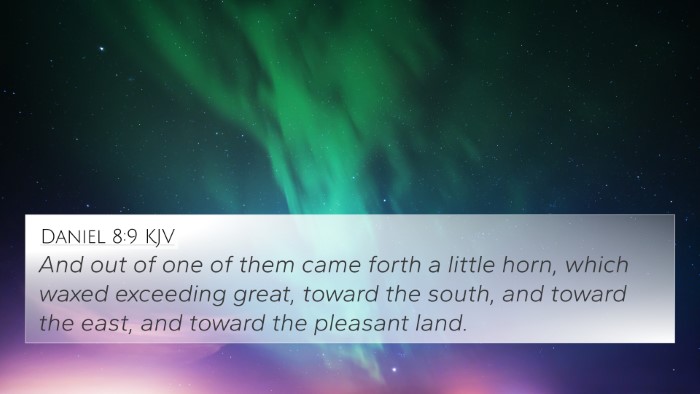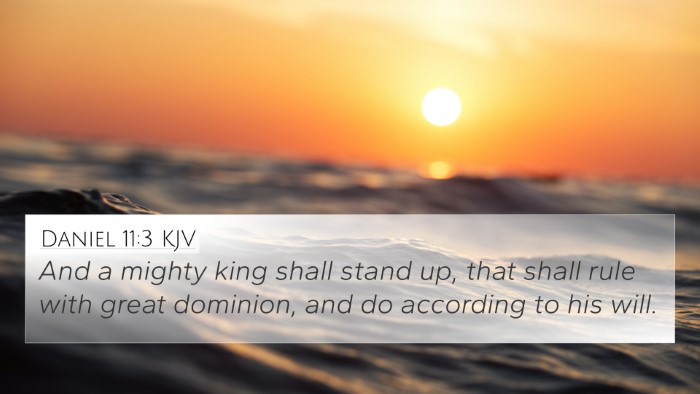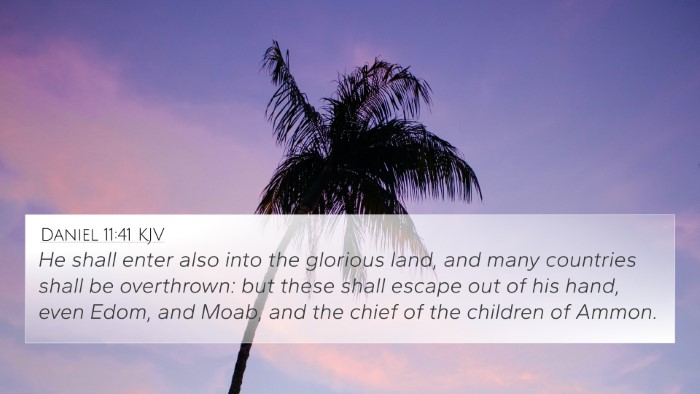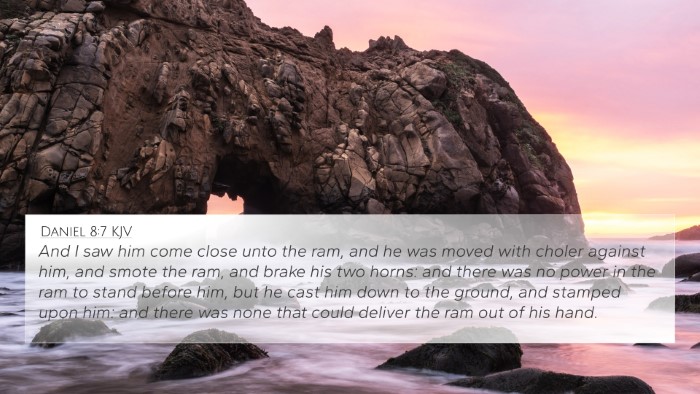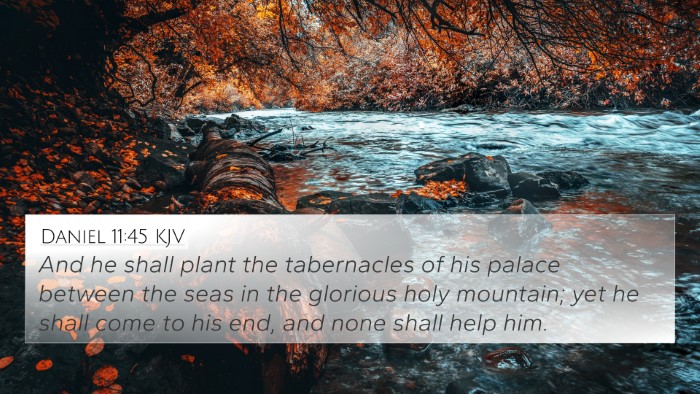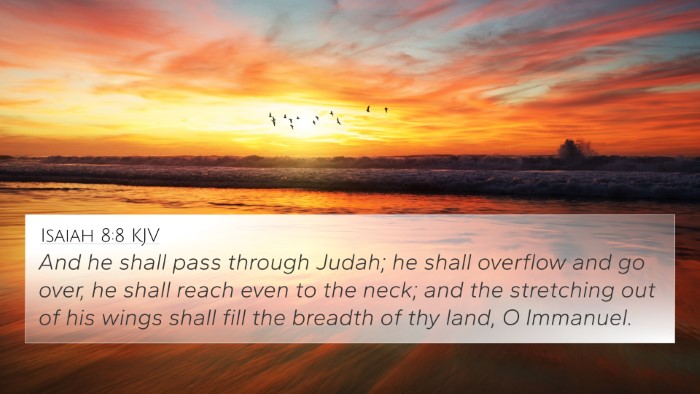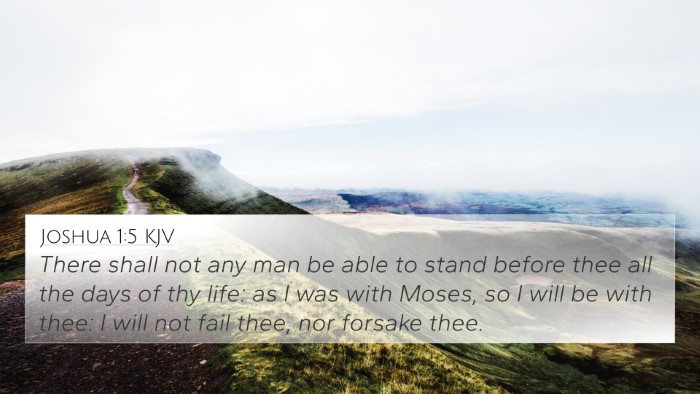Understanding Daniel 11:16
Verse Reference: Daniel 11:16 - "But he that cometh against him shall do according to his own will, and none shall stand before him: and he shall stand in the glorious land, which by his hand shall be consumed."
Overview of Context
The Book of Daniel is a prophetic text that encompasses various themes, including visions, prophecies concerning the kingdoms of the earth, and the ultimate triumph of God's kingdom. In Daniel 11, the prophet conveys a detailed vision of the conflicts between rulers, particularly focusing on the succession of empires.
Commentary Insights
The significance of Daniel 11:16 hinges on the power dynamics between nations and the fulfillment of God's plan amidst earthly governments.
- Matthew Henry's Commentary:
Henry emphasizes that the passage points to the sovereignty of God. It illustrates how worldly powers rise and fall according to divine will. The phrase "none shall stand before him" showcases the overwhelming strength of the ruler who comes against Israel, a foreshadowing of future oppressors.
- Albert Barnes' Notes:
Barnes provides a historical context, arguing that this verse refers to the actions of Antichus Epiphanes as he invaded Palestine. He interprets the "glorious land" as Israel, underlining the suffering the nation faced due to foreign invasion and emphasizing God’s ultimate plan of restoration.
- Adam Clarke's Commentary:
Clarke identifies this ruler as a key antagonist and discusses the seeming invincibility of this power. He illuminates the suffering undergone by the "glorious land," implying that God’s people will endure, but also hints at the coming deliverance that follows suffering.
Thematic Connections
This verse reflects broader themes within the Bible, demonstrating the interaction between divine sovereignty and human history. It establishes a dialogue between past oppressors and future eschatological events:
- Divine Sovereignty: This verse aligns with other Biblical texts that emphasize God's control over earthly rulers (see Proverbs 21:1, Isaiah 40:23-24).
- The Suffering of God's People: This connects with the struggles of Israel depicted in Lamentations 3:34-36, where God's people faced oppression and injustice.
- Anticipation of Restoration: There is a parallel with Revelation 21:4, which depicts the ultimate victory of God's kingdom over worldly suffering.
- Historical Conflicts: Reflects the struggles noted in Ezekiel 38-39 regarding the battles against God’s people and their eventual divine rescue.
- Assurance in God’s Plan: Links with Romans 8:28, asserting that all things work together for those who love God, hinting at the eventual triumph of God’s purposes even through trials.
Cross-References
Here are significant Bible cross-references that relate to Daniel 11:16:
- Proverbs 21:1: "The king’s heart is in the hand of the Lord, as the rivers of water: he turneth it whithersoever he will."
- Isaiah 40:23-24: "That bringeth the princes to nothing; he maketh the judges of the earth as vanity."
- Lamentations 3:34-36: "To crush under his feet all the prisoners of the earth, to turn aside the right of a man before the face of the Most High."
- Revelation 21:4: "And God shall wipe away all tears from their eyes; and there shall be no more death, neither sorrow, nor crying, neither shall there be any more pain."
- Ezekiel 38-39: A prophecy about Gog and Magog, illustrating God's ultimate triumph over oppressive forces.
- Romans 8:28: "And we know that all things work together for good to them that love God."
- Jeremiah 30:7: "Alas! for that day is great, so that none is like it: it is even the time of Jacob's trouble; but he shall be saved out of it."
Interpreting Through Themes
In the context of inter-Biblical dialogue, Daniel 11:16 serves as a bridge between the historical struggles of God’s people and the messianic hope found throughout scripture. The idea of God’s sovereignty in the face of opposition resonates powerfully throughout the biblical narrative, ultimately providing hope and assurance to believers.
Tools for Bible Cross-Referencing
For deeper study and understanding of scripture connections, utilizing tools for Bible cross-referencing can be beneficial. Some recommended resources include:
- Bible Concordances: These lexicons provide references for terms and passages to find thematic links.
- Bible Cross-Reference Guides: Guides that present verses alongside their connections to enhance study.
- Bible Reference Resources: Comprehensive resources ensure a thorough exploration of scriptural themes and connections.
- Cross-Reference Bible Study Methods: Strategies to draw parallels between different parts of the Bible.
Conclusion
Daniel 11:16 ultimately invites readers to appreciate the profound layers of God’s sovereignty in historical and prophetic contexts. Engaging with this verse through comprehensive Bible cross-referencing can deepen understanding and enhance spiritual reflection.
